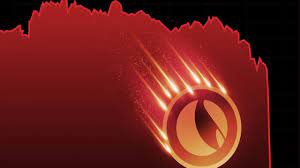Food producers actively embrace blockchain technology, IBM food traceability blockchain platform adds new members
According to Cointelegraph reported on February 7, IBM Food Trust, the food traceability blockchain platform of IBM, has added new ones. A French food manufacturer has joined the platform to seek to improve product traceability and supply chain transparency.

Image source: visualhunt
According to a press release issued on February 4, the Avril Group, a manufacturer of vegetable oils, eggs and proteins, and the owners of the Matines and Lesieur brands, have started using the IBM Food Trust network to ensure traceability of their products.
- SheKnows New Year's Debate | Encountering the "black swan" epidemic, the "crisis" and "opportunity" of the blockchain
- "Remember" is the best farewell. How to use blockchain to store information on the chain?
- Gu Yanxi: Under the epidemic, how to use blockchain to improve the online education industry?
Improve corporate social responsibility and customer experience
Through the implementation of the blockchain, the Avril Group expects to make improvements in the areas of corporate social responsibility, especially in the areas of quality animal husbandry and consideration of animal welfare.
Matines hopes to improve the customer experience by printing QR codes in egg boxes to improve transparency. The QR code directs customers to an application that contains extensive data related to the eggs they consume, including how the chickens are fed and the date the eggs are shipped to the dealer's warehouse.
Food producers actively embrace blockchain
In January this year, CHO, one of the largest olive oil producers in the southern Mediterranean, announced that it is using IBM's blockchain technology to provide traceability for its Terra Delyssa extra virgin olive oil. Ramesh Gopinath, vice president of IBM Blockchain Supply Chain Solutions, said in an interview with Cointelegraph:
"The biggest advantage of the IBM Food Trust network is its ability to connect members of the supply chain, such as connecting end consumers and farmers. CHO does this because every relevant entity can share data, which not only Provides traceability and food information, and also shows the overall direction of food trust. "
Food manufacturers have been actively adopting blockchain in recent months. Last November, retail giants Carrefour and Nestlé began using IBM's Food Trust blockchain platform to track the supply chain of infant formula. Therefore, these companies aim to increase consumer confidence in product quality.
In the same month, Singapore's blockchain application platform VeChain announced a new blockchain tracking system for the food and beverage industry. The company has collaborated with food certification group DNV-GL and supply chain specialist ASI Group to develop this project called Foodgates.
We will continue to update Blocking; if you have any questions or suggestions, please contact us!
Was this article helpful?
93 out of 132 found this helpful
Related articles
- Wide range of compatibility and privacy, Square Crypto's Lightning Network Toolkit has so many advantages
- A large "true fragrance" scene? Countries that have made a 180 ° turn in their attitude towards central bank digital currencies
- The founder runs away, Cosmos strife
- Viewpoints | Thought Experiments on "Aggressive Market" and the Battle of the Epidemic
- Blockchain commercial payment company Paystand secures $ 20 million in Series B funding
- Providing fulcrum for export, banking and financial industries, Australia releases national blockchain strategy roadmap
- Alipay endeavors to launch epidemic prevention materials information service platform, using blockchain to achieve full traceability






